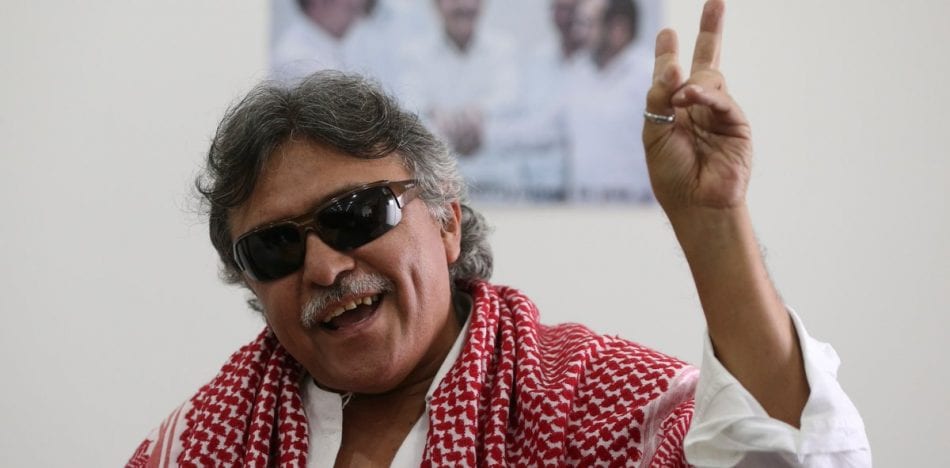
Spanish – FARC leader Jesus Santrich’s trip from Venezuela to Cuba was confirmed. Former Colombian President Andres Pastrana had anticipated the trip.
Darcy Quinn, a journalist at Caracol radio, said on the 6AM Hoy por Hoy show, “The guerilla Santrich traveled to the island after Interpol issued a Red Notice against him. She asserted that according to information established by intelligence agencies, the fugitive Ivan Marquez also accompanied Santrich on the trip.
The purpose of the trip was to seek the cooperation of the Castro dictatorship, but they intended to return to the Chavista country. “Since returning to Venezuela, they are in the Elorza region,” Quinn said.
Santrich abandoned his security system last July and, according to his allies, fled to Venezuela, then to Havana, which served as a guarantor in the negotiations between the members of the former guerrilla group and the government of former President Juan Manuel Santos.
Me llega la siguiente información:El avión de uso exclusivo de @NicolasMaduro que camuflan como comercial de Conviasa, matrícula YV3016 salió rampa 4 de Caracas destino La Habana. Transporta a Iván Márquez, Santrich y Adán Chávez para reunión emergencia en #Cuba pic.twitter.com/INbY4IRoNj
— Andrés Pastrana A (@AndresPastrana_) August 10, 2019
“Nicolas Maduro’s private use plane camouflaged as a Conviasa commercial, serial number YV3016 left runway four from Caracas to Havana. It carried Ivan Marquez, Jesus Santrich, and Adan Chavez for an emergency meeting in Cuba,” Pastrana wrote on Twitter.
Ivan Duque, the president of Colombia, had pointed out something similar when he accused Nicolas Maduro’s regime of protecting the guerrilla leader who is on the wanted persons list of the International Criminal Police Organization (Interpol).
“(…) The truth is that now with the Red Notice, every state is under the obligation to surrender this criminal and any country that protects and promotes the protection of a criminal exposes itself to condemnation by the international community, and so we will act.”
Cuba should have reported the presence of the guerrillas
Miguel Ceballos, the Colombian High Commissioner for peace, said that countries like Cuba and Venezuela have an obligation to respond to Interpol calls or alert that they are protecting a wanted and prosecuted person like Santrich.
The Interpol circular had been issued since 11th July but had not been published. Now with its publication, anyone in the world can identify him and report him to the agency.
According to Ceballos, the Attorney General’s Office appealed the decision of the Special Jurisdiction for Peace (JEP) to guarantee the non-extradition of the guerrilla leader although the united States demanded his non-extradition in a criminal proceeding for drug trafficking.
Venezuela and Cuba covering up for terrorists and guerillas prosecuted by the justice system is nothing new.
It is worth noting that there is tension between Cuba and Colombia over a protocol signed by the Santos government, which includes the island as a guarantor of the peace negotiations sought. Among the agreements, a protocol was signed “in the event of a breakdown in the negotiation” which established what would happen to the ELN delegates in the event of a breakdown.
However, following the ELN terrorist attack on Thursday 17th January at a police academy in the city of Bogota, the Colombian government said that this document “does not give shelter to terrorism.” President Duque asserted that there was no way to continue with the peace dialogues in that country.
On that day, Duque announced the arrest warrants against the ten negotiators were active once again, and the Red Notice against them would be valid.
 Versión Español
Versión Español












